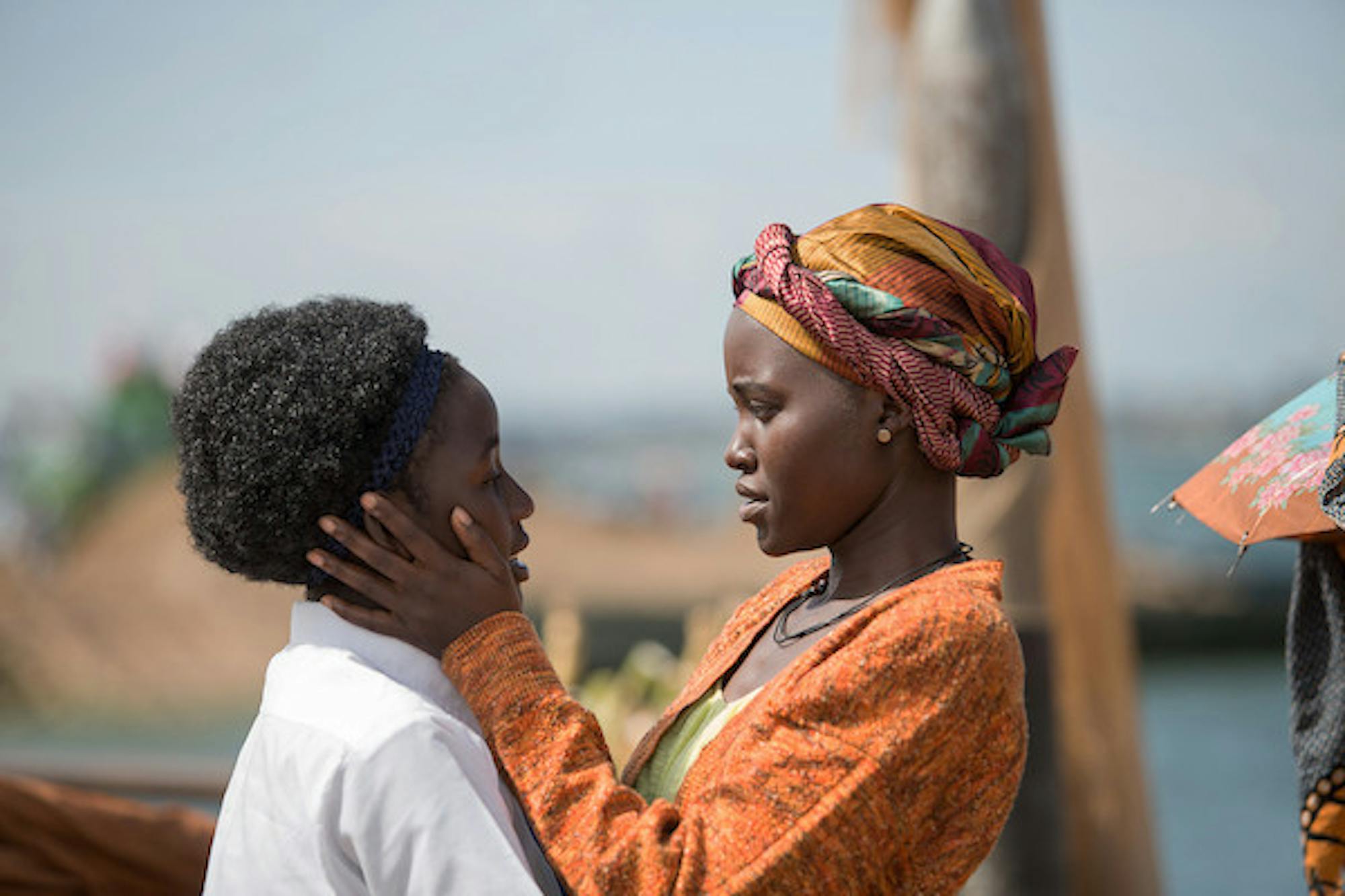"Queen of Katwe," released on Sept. 23, begins with a shot of a girl’s feet immediately followed by one of her face, steely and intensely focused. It is clear the viewer is witnessing an ascent, from literal low to high. The girl is Phiona Mutesi, a young girl from the Ugandan slum Katwe who unexpectedly rises as a chess prodigy and grandmaster.
Mutesi, played by Madina Nalwanga, is a real girl. Her story was originally made into a 2012 book called "The Queen of Katwe: A Story of Life, Chess, and One Extraordinary Girl’s Dream of Becoming a Grandmaster" by Tim Crothers in conjunction with ESPN. Ugandan-born Disney executive Tendo Nagenda learned about the story and, with screenwriter William Wheeler, became determined to pitch the story as a movie to Disney. He sold it as a traditional underdog story that fits in with Disney’s brand of movies: the feel-good movie, the lessons-learned movie. What Disney was concerned about was a movie set filmed almost entirely in Africa. "Queen of Katwe," however, succeeds in spite of the concerns, thanks in part to its acclaimed director Mira Nair.
The movie's setting turns out to be one of its strengths. It is actually filmed in Katwe, and the shots are lively and breathtaking. The ground is yellow and dry, but the film is filled with human life: in the streets selling maize and fish, in the corner stores displaying toys, food and hairstyles and on decked-out motorcycles. Everything that isn’t earth is colorful. Almost all of the cast is African, save for some foreign chess competitors. Despite reluctance to give Disney a cookie for casting African actors for African roles, it was especially relieving to find that the Christian missionary who introduces Mutesi to chess, Robert Katende, was portrayed true-to-life as a local Ugandan from a poor background — lest this movie become another “white savior” story. David Oyelowo, who is known for his portrayal of Martin Luther King Jr. in 2014’s "Selma," plays Kantende with real passion.
Mutesi's mother, Nakku, played phenomenally by Lupita Nyong’o, is the real star: a single mother who works relentlessly for her children but also represents a way of life that Mutesi is trying to claw her way out of. She’s not just a supportive, if bewildered, mother who passively goes along with her daughter’s success; things are always going wrong, and while her daughter emerges as a diamond in the rough, Nakku is left trying to smooth over the edges. Katende tells Nakku that her daughter is good enough to play at a world championship in Russia and maybe get funding for a private school education. Surely, she understands how significant that would be. Nakku crosses her arms and tells him, “I am not an educated woman. I understand nothing.” On the contrary, she understands reality: There’s nowhere for her daughter to go but up. In the next shot, Mutesi and the other Ugandan children who qualified are being buckled into airplane seats.
This displacement becomes a significant and moving theme. As Katende tells Mutesi, “Sometimes the place you are used to is not the place you belong.” She cannot live out her potential in Katwe, even with Katende’s teaching: After only a year of playing, she is beating him. She has an aggressive style, and even chess amateurs can see her pieces slowly circle her opponent’s king before he even knows it, which is a deadly tactic. What’s refreshing about Mutesi's character is that she is not passive -- she doesn’t spend the whole movie thinking she can’t succeed because of her poor, humble background. She has ups and downs and even veers toward arrogance at times, which is unsurprising given how quickly she becomes a local celebrity.
These kinds of details are what propel "Queen of Katwe" out of the corny category and into that of a fantastic movie that's just feel-good enough. The chess metaphors are significant but not overdone (the most memorable is when a pawn changes into a queen as it hits the opposite end of the board — “The little man can become the queen.”) The details are real. Out of necessity, Mutesi helps her mother cheat people out of paying whenever possible. She has a moment of despair, telling Katende that men will be coming after her soon, asking, “Where’s my safe square?” At her first national competition, she plays against a private school boy who sneers and tells her, “This isn’t the ghetto.” It’s a real hard-knock life, and the movie doesn’t shy away from showing it. It stays true to its roots in casting, writing and narrative, while still coming away with positivity and inspiration. Watch this movie to feel genuine warmth. And if you do see it, stay for the credits: It is one of the most surprising, moving parts.
Casting, unique touches make 'Queen of Katwe' a genuine, impressive underdog story

Summary
4 Stars





